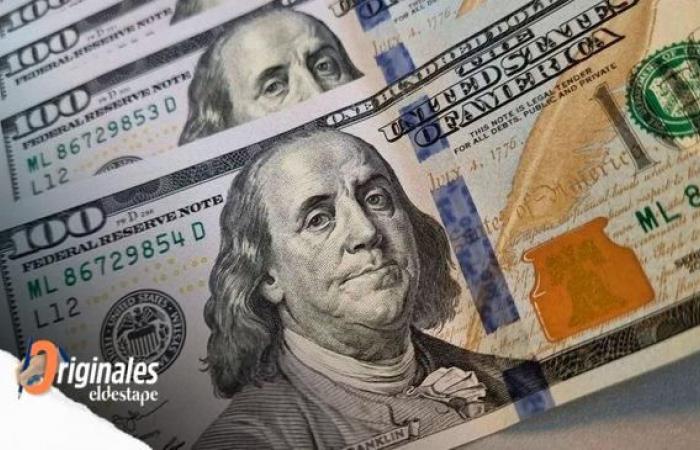The Central Bank relaxed the rule that requires the dollars obtained from financial income to pass through the banks before investing them againjust in advance of the amortization and interest payment of the global bonds that the government must face next month for US$ 2.1 billion.
The Government’s intention is to retain as much as possible of these dollars within the system, to prevent them from ending up “in mattresses” increasing the assets of Argentines outside the formal financial system.
We do this project collectively. Support El Destape with a click here. Let’s continue making history.
SUBSCRIBE TO THE DISCOVERY
But the rule does not clarify in which assets it can be invested, so the dollars that come out of international reserves to pay bondholders could end up invested in foreign stocks or debt issued by other countries.
It can also be applied to buy securities abroad without the need to have your own account abroad, facilitating CCL (cash settlement) operations to transfer foreign currency abroad without BCRA control.
The rule required that the dollars received from financial income or the product of exchange operations be transferred to a bank account before reinvesting them and was established in the previous administration to prevent tax avoidance or evasion maneuvers or money laundering.
The BCRA provided through communication A8042 that clients will now have 15 business days from when they receive the income from the collection of capital and/or interest on debt securities issued by residents until they reinvest them without the need to transfer them to a financial institution.
The rule clarifies that “it will apply to the extent that the reinvestment of the funds by the beneficiary is neutral in tax matters with respect to the operation of crediting the funds in a demand account of the beneficiary in a financial institution and its subsequent debit for the purchase of securities.”
In June, the Government has to pay only US$ 5 million in amortization of global bonds, but In July the figure shoots up to US$ 2.1 billion between US$ 1.0 billion of capital and US$ 1.1 billion of interest.
The market expects the Government to face these payments and that is why the bonds registered an upward rally, interrupted last week by fears of a political failure in the Senate, but which rose again with the approval of the Bases law.
In any case, analysts expect a low reinvestment of those dollars. The idea is to collect and make cash, in anticipation of the country’s financing becoming complicated.
Although it is estimated that only a third of the debt is in the hands of the private sector and two thirds in the public sector (especially in the Sustainability Guarantee Fund of the pension system and the BCRA itself), the liquidation must be made in full and in As long as the Treasury does not issue new debt in foreign currency, the dollars received by public organizations may be used, for example, to intervene in financial markets when instability returns and alternative dollars skyrocket.
The bonds opened this Friday with moderate increases, in the order of half a point for the AL30 and GD30, the most liquid ones and which will pay interest next month.






